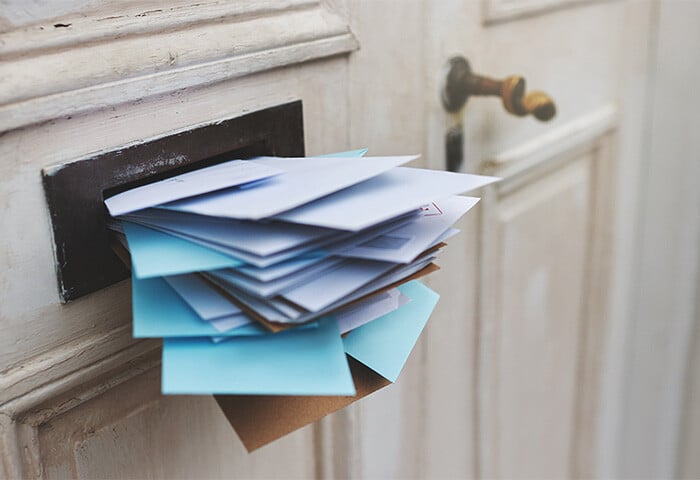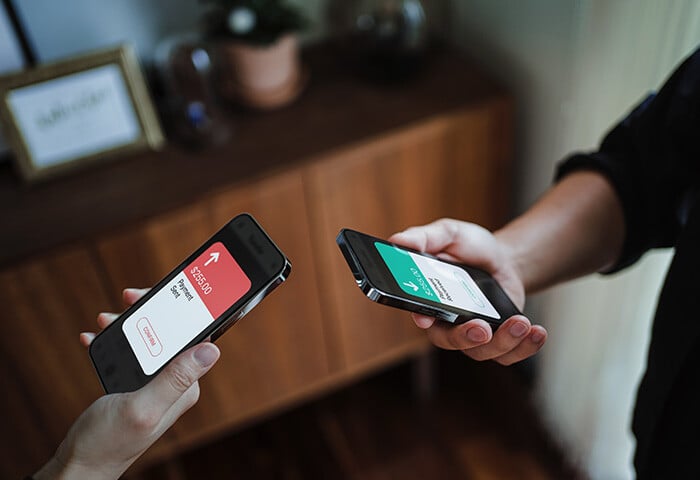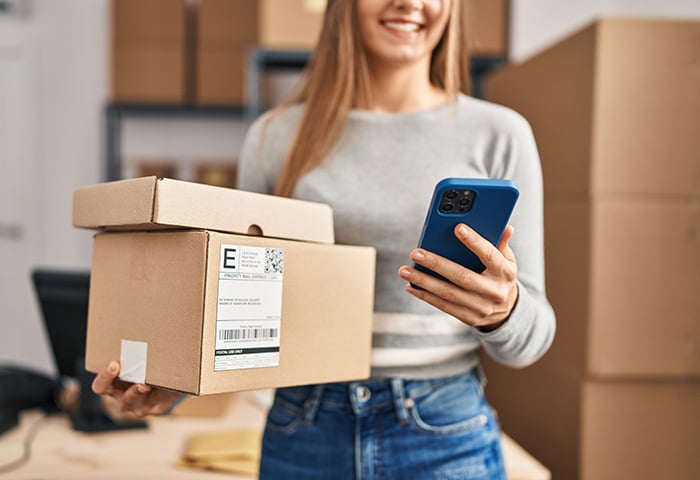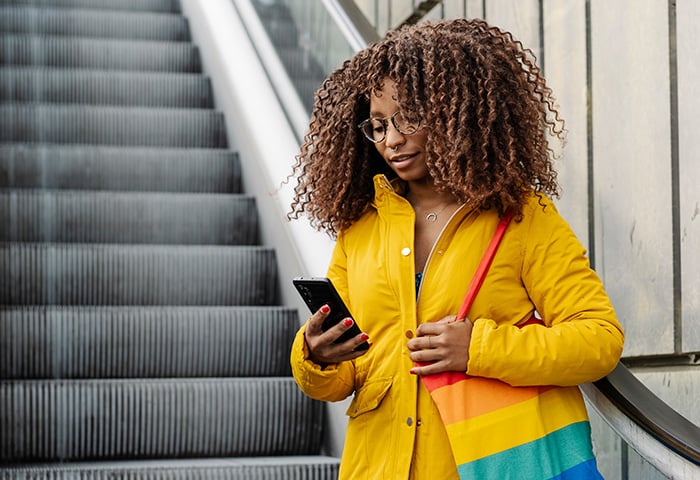What is Cash App?
Cash App is a well-known peer-to-peer (P2P) mobile payment service that’s mainly used for sending and receiving money between family and friends. Recently, Cash App also launched features for trading cryptocurrency and investing in stocks.
Who created Cash App?
Cash App was developed by Block Inc., a financial services and technology company co-founded by ex-Twitter CEO Jack Dorsey. Block Inc.’s other products include the Square point-of-sale systems and Tidal streaming service. Cash App launched in the US in October 2013 as Square Cash.
How does Cash App work?
Cash App allows users to send and receive payments from other Cash App users without going through a bank or paying a fee — all you need is the payee’s $Cashtag, their unique identifier on the app.
Here’s how to send money on Cash App:
-
Open Cash App.
-
Type the amount you want to pay.
-
Type the payee’s $Cashtag.
-
Tap Pay.
You can also request money from another Cash App user by tapping Receive instead of Pay.
Can someone be scammed through Cash App?
Despite the app’s advanced security technology, you can be scammed using P2P payment services like Cash App. A 2022 survey by Consumer Reports Survey Group found that while 78% of Americans who have used P2P services have never had issues, 6% of respondents who have experienced an issue said it was scam-related.
Mobile P2P payment apps cannot guarantee the legitimacy of every active user.
A 2023 Hindenburg Research report about Cash App states: “Former employees estimated that 40-75% of accounts they reviewed were fake, involved in fraud, or were additional accounts tied to a single individual.”
It should be noted that Cash App’s parent company Block later dismissed the Hindenburg report as “factually inaccurate and misleading.”
Whether or not the figures are true, mobile P2P payment apps cannot guarantee the legitimacy of every active user.
Popular Cash App scams
Some of the most popular scams on Cash App include phishing attacks, selling fake goods, and sharing malware. Knowing the types of threats you might encounter on Cash App can help you avoid falling victim to a scam.
1. Impersonating Cash Support
Cash Support is Cash App’s customer support service. On its website, Cash App makes it clear that Cash Support can only be contacted directly through the app or website.
However, customer tech support scams exist where users receive emails, text messages, or DMs on social media platforms claiming to be from Cash Support.
A scammer will ask for your Cash App password and the one-time passcode you receive to “help” secure your account. If you give them this information, they will be able to access your account and send your funds to their own $Cashtag.

Another example of a Cash App support scam is when a scammer asks you to download an app for remote access or to complete a “test” transaction.
Cash Support will never ask you to download an app, transfer money, or give out your sign-in information. If this happens to you, it’s a scam.
2. Cash App For Business scams
In 2015, Cash App (then known as Square Cash) launched Cash App for Business to help small businesses quickly send and receive payments for goods and services.
Common Cash For Business scams include:
-
Pet deposit scams: Scammers send pictures of hard-to-find pet breeds at low prices and demand a deposit to see the animal in person.
-
Home rental scams: Scammers send images of homes at low prices and demand a deposit to secure a viewing.
Other items that scammers might try to “sell” for discounted prices through Cash App include concert tickets and luxury items.
Cash App stresses the importance of transferring money only to businesses you trust, such as established traders or those you know personally.
3. Accidental transfers
If a few hundred dollars were to land in your Cash App account, you might just think it’s your lucky day. Unfortunately, it’s likely part of a common Cash App scam.
With this scam, you’ll unexpectedly receive a substantial transfer followed by a message from someone claiming they sent it to you by accident and asking you to refund the money. But this scam is usually done using stolen credit cards or hacked Cash App accounts, meaning the funds they transferred into your account will be reversed.
If this happens to you, ignore the sender — even if you think they could be genuine. Instead, contact Cash Support and ask them to resolve the situation.

4. Cryptocurrency schemes
Cash App introduced Bitcoin to the platform in 2018 and scammers have since found ways of capitalizing on this feature.
Cryptocurrency scams on Cash App sometimes start outside the platform, typically on social media. You might come across a video on Facebook or Instagram promising massive returns on an initial investment if you transfer a certain amount to the scammer’s $Cashtag.
They may also message you directly, asking you to invest in a small amount of cryptocurrency for big returns. This might be from a friend’s social media account like an Instagram that has been hacked.
5. Cash flipping
“Cash flipping” is another common Cash App scam and is similar to cryptocurrency scams.
Scammers will typically make first contact outside the app — through email, Facebook, Instagram, or X (formerly Twitter) — posing as financial experts and promising massive returns on an initial “clearance fee.”
But if you send this clearance fee, the scammers will disappear without sending you anything in return.

6. CashAppFriday scams
Cash App runs regular official giveaways, the most popular of which is called Cash App Friday. These giveaways are publicized via Cash App’s official, verified X account.
However, scammers exploit these giveaways by using hashtags like #CashAppFriday and #CashAppGiveaway to attract victims to their scheme.
These hashtags are not part of Cash App’s official partnerships. Promotions that use them are scams.
7. Phishing, vishing, and smishing
Cash App users could be vulnerable to various types of phishing scams. Phishing is a type of social engineering attack that involves a scammer convincing a user to hand over sensitive information — in this case, access to their Cash App account.
Phishing can take place over email, SMS (smishing), or phone calls (vishing).
Scammers will often pretend to be employees of Cash App or people you know in real life. They will try and convince you to tell them your login information or direct you to a pharming site where you’ll be asked to sign into your account, but the site is fake and the scammer has your login details.
 Vishing Cash App scams take place over the phone.
Vishing Cash App scams take place over the phone.
8. Catfishing and sugar daddy scams
There are two main types of Cash App romance scams: catfishing and sugar daddy scams.
Catfishers form a false relationship with their victim. Once they have gained their target’s trust, they typically invent an emergency scenario they need money for — such as a plane ticket to visit a sick relative — and convince the target to cover the cost. The victim, believing they are in a genuine relationship, pays via Cash App.
Sugar daddy scams are when an older benefactor — a “sugar daddy” — agrees to send money and gifts to a younger beneficiary in exchange for companionship, emotional support, or sometimes sexual favors. On Cash App, a sugar daddy promises to pay a larger sum to a sugar baby if they first pay a small amount to prove their identity.
9. Screenshot scam
Screenshots are often used in Cash App scams to make them appear more convincing. They can also be part of other scams, such as “proof” of an accidental transfer or the significant returns available on an initial investment.
Scammers might also ask their targets to take screenshots of their Cash App account screen, which they can then use to scam other Cash App users.
10. Government scams
Scammers sometimes use Cash App to impersonate government agencies, alerting users that they are due a tax refund or similar. They might also promise access to Social Security benefits and services and ask the user to send them their Social Security number (SSN), which can then be used to commit fraud or identity theft.
Government agencies do not use Cash App for any purpose. If someone messages you saying they will pay a refund over Cash App, they are a scam artist.
How safe is Cash App?
Cash App is generally safe. It even comes with built-in security features, such as two-factor authentication (2FA), encryption, and fraud detection and monitoring.
Here are Cash App’s main security features:
-
Two-factor authentication (2FA): If you have two-factor authentication enabled on Cash App, you’ll receive a one-time passcode to your email or mobile phone when you log in.
-
Security Lock: With Security Lock, you can choose between a PIN or biometric security features (facial recognition, fingerprint ID, etc.) for an additional layer of protection before submitting payments.
-
Encryption: Cash App uses end-to-end encryption technology to scramble payment data and help protect you from hackers.
-
Fraud detection and monitoring: Cash App will notify users of suspicious activity on their account and may cancel transactions they believe to be unauthorized.
-
Transaction limits: You can send and receive up to $1,000 in a 30-day period. Verified users have higher limits.
-
Refunds: In cases where unauthorized payments have been made from your account, Cash App may offer a refund following an investigation.
Unlike some of its competitors, Cash App doesn’t offer fraud protection for authorized payments. That means that if you pay for a product or service that you never receive, you probably won’t recover your money.
It’s important to follow website safety best practices when transferring money using Cash App — never use it to transfer money to someone you don’t know.
How to avoid cash app scams
The best way to avoid scams on Cash App and other peer-to-peer mobile payment platforms is to practice vigilance — be careful what information you share online and with whom.
Send payments only to people you know and trust
Cash App’s consumer platform is primarily designed for paying small amounts to family and friends. You can use the app for larger transactions, but this is at your own risk.
Never send money to someone whose identity you can't verify, and don’t use Cash App to pay for goods you haven’t seen.
Don’t share your information online
Many Cash App scams begin outside the app — with an email, SMS, or DM on social media platforms like Facebook, Instagram, Snapchat, TikTok, or X.
Always be alert to the risks of sharing your personal information online — such as your Cash App PIN or one-time passcode, your banking information, or your Social Security number — even if it’s with someone you know and trust. They could’ve been hacked or victims of a scam themselves!
 Don’t share personal information with strangers, and adjust the app’s privacy settings.
Don’t share personal information with strangers, and adjust the app’s privacy settings.
Check your Cash app transactions and bank statement regularly
You can be a victim of a Cash App scam without realizing it — perhaps you gave your sign-in information to someone posing as a friend or family member or your account’s been compromised in a data breach.
Cash App’s fraud monitoring technology will also notify you of any suspicious activity, but you should still look for transactions you don’t recognize in case something slips through the cracks.
Don’t click suspicious links
Cash App scams often include a link to a fake website that will steal your details. Or the link could contain code that triggers a malware download and infects your device with keylogging software allowing scammers to record your passwords and personal information.
Use strong, unique passwords
Always use strong, unique passwords for each of your online accounts. If you’re using the same passwords across multiple apps or using a passcode that’s easy to guess, your Cash App account is more vulnerable to hacking. Use a password manager to keep track of them all and store them securely.
Use two-factor authentication
Cash App gives users the option of turning on two-factor authentication (2FA) to secure their account. It may seem tedious to wait for a one-time passcode every time you use the app, but 2FA is one of the best defenses against hackers.
Even if a hacker does get access to your password through a data breach, they’ll need your mobile phone or access to your email to sign in. Enabling 2FA on your email, too, makes it even more difficult for someone to hack your accounts. Remember: If you enable 2FA, never share your one-time passcodes with anyone online.
 Two-factor authentication can help secure your Cash App account.
Two-factor authentication can help secure your Cash App account.
Turn on alert settings
Turning on notifications in Cash App means you’ll be alerted after every transaction, so you'll quickly know when funds are leaving your account. If you haven’t authorized the payment, there may be a chance to cancel the transaction before it goes through.
Here’s how to turn on alert settings in Cash App:
-
Open Cash App and tap your profile icon.
-
Tap Notifications, then select which ones you’d like to activate.
I think I've been scammed, what do I do?
If you believe you’ve been scammed on Cash App, you should try to recover your money, secure your account, and report and block the scammer. The quicker you act, the more likely that you can stop the scam before the fraudster causes more damage.
Here’s a detailed description of what you should do in case you’re scammed on Cash App:
Try to cancel the transaction
If you catch the scam early enough, you may be able to cancel the transaction before the scammer has finalized it.
Here’s how to cancel a transaction on Cash App:
-
Go to Cash App and navigate to the Activity tab.
-
Find the payment you want to cancel and tap Cancel.
If there’s no option to cancel the transaction, the payment has already been finalized. In that case, you’ll need to report the payment.
Report the payment as a scam
Cash App allows you to report payments as scams within 30 days of the transaction.
Here’s how to report a Cash App payment as a scam:
-
Open Cash App and go to the Activity tab.
-
Select the payment you’d like to report and tap the three dots in the top-right corner.
-
Select Report an Issue > I was scammed.
Report and block the scammer
After reporting the payment, report the scammer’s user account to Cash App, too. This may help you get your money back, can ensure they don’t contact you again, and can also help protect other users from a known scammer.
Here’s how to report and block a scammer:
-
Open Cash App and search for the scammer using their name, $Cashtag, phone number, or email address.
-
Select their profile and tap the options to Report and Block them.
Change your Cash App account details
If you have shared your Cash App login details or believe they may be compromised, you should change your information.
Here’s how to change your Cash App PIN:
-
Go to your Cash App profile and navigate to Privacy and Security.
-
Tap Change Cash PIN. You’ll be asked to enter your current Cash PIN, then enter your new Cash PIN twice to confirm the change.
Contact your bank
Most banks don’t usually cover money lost through Cash App or other third-party peer-to-peer payment transfer apps in their policies. However, you should still notify your bank’s fraud department of the scam. If you can prove that a fraudulent transaction took place, they may be able to help you recover the funds.
Report the scam to the FTC
Report the scam to the FTC (Federal Trade Commission) in the US. They may share the report with law enforcement, and it could help stop the scammer. They’ll also tell you what you can do to help protect yourself.
Will Cash App refund money if I'm scammed?
Cash App is unlikely to refund your money if you get scammed as it doesn’t offer fraud protection. That’s why it’s important to use the app to pay only people you know.
The app does offer fraud detection and may cancel a transaction if it’s flagged as suspicious or if they’re immediately made aware of the scam. However, you should not expect a refund from Cash App for authorized payments — even if you’ve been the victim of a scam.
Boost your online privacy with AVG
Your online activity is tracked across the internet to sell you products. AVG Secure Browser comes with built-in anti-tracking technology — part of our Privacy Guard feature — to help keep your activity hidden and your personal searches, interests, and interactions secure. And AVG Secure Browser can also help protect against scams.
Online attacks abound. Thankfully, your browser can be your first line of defense. AVG Secure Browser will help fight scams, identify fraudulent websites, and block dangerous downloads so you can browse with greater peace of mind.





















